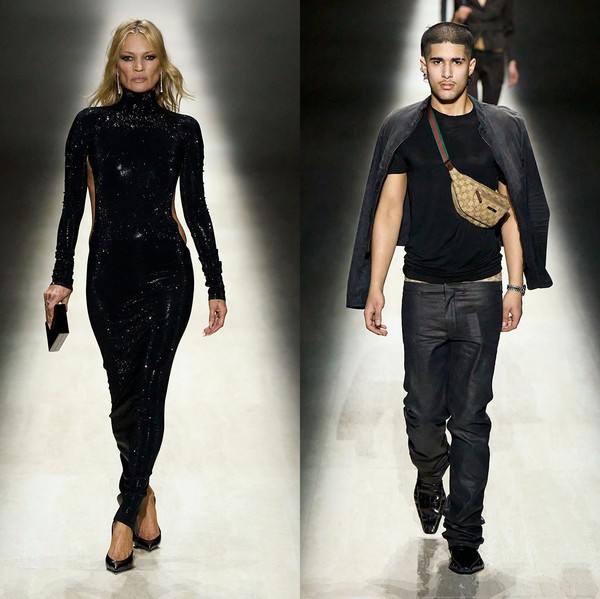In the Ring with the Body-Slamming, Pigtail-Wearing Wrestlers of Sukeban
The Japanese women’s pro wrestling league makes its Los Angeles debut.

Backstage at Sukeban—a joshi, or all-female, Japanese pro wrestling league—hairstylist Dennis Lanni carefully adds a mohawk to the punky Midnight Player. He takes a dirty blonde hair extension, hand-dyed eyeballs lurking in its strands, and presses it into the wrestler’s scalp. One hand caresses the extension, keeping it flat, while the other attacks it with hairspray. He finishes the look by gliding his palms together until the spikes stick up just right.
This is the third time Lanni has done hair for Sukeban, which is currently on its first tour of America. Lanni is known for mixing craft supplies with his couture sense of style. The accessories table in the Trinity Los Angeles green room looks like a Michael’s stock room; Lanni twists string, ribbons, pipe cleaners, and wires into hair, creating colorful looks that defy gravity yet remain resilient.
“They take a licking and keep staying on the head,” Lanni reassures me.
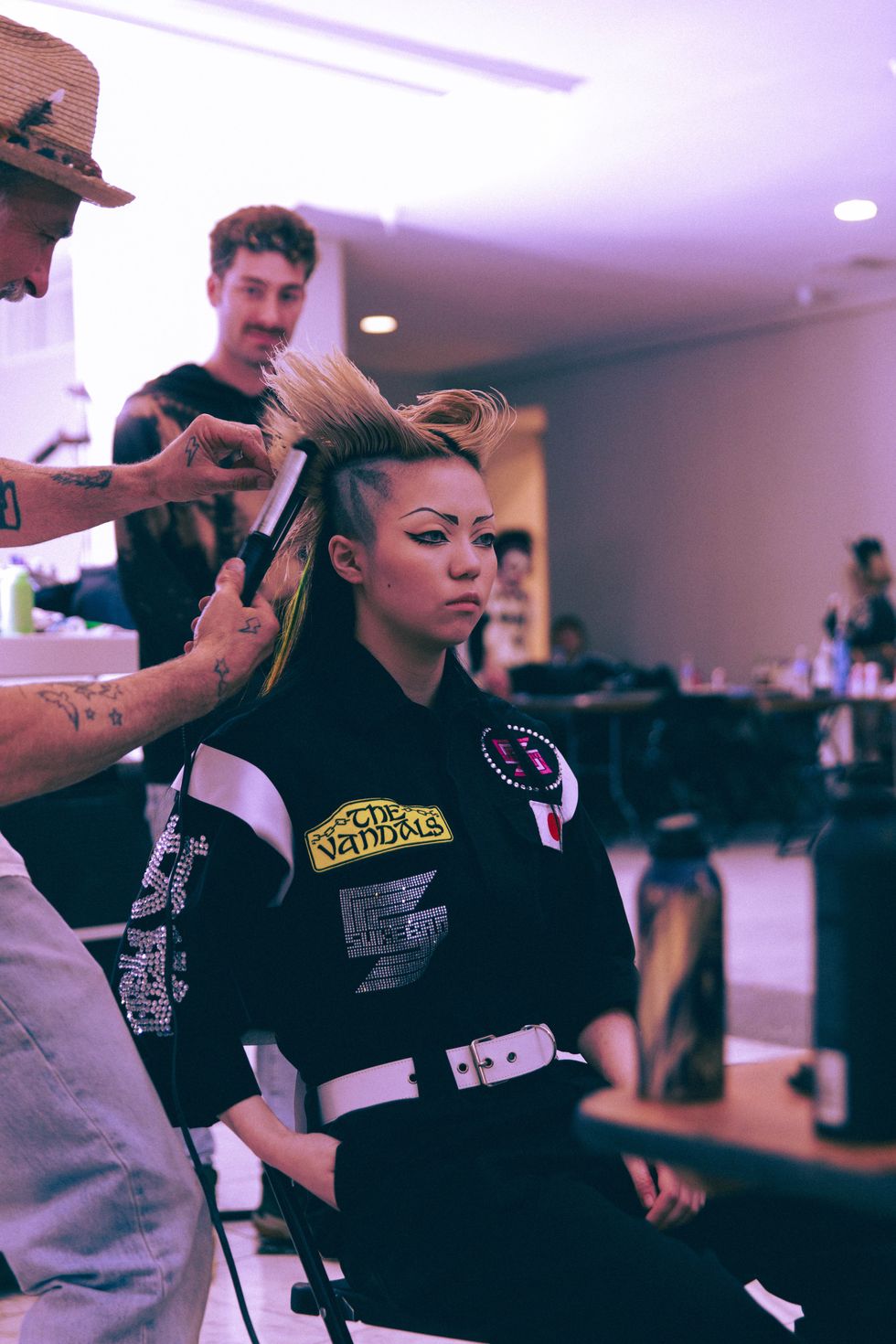
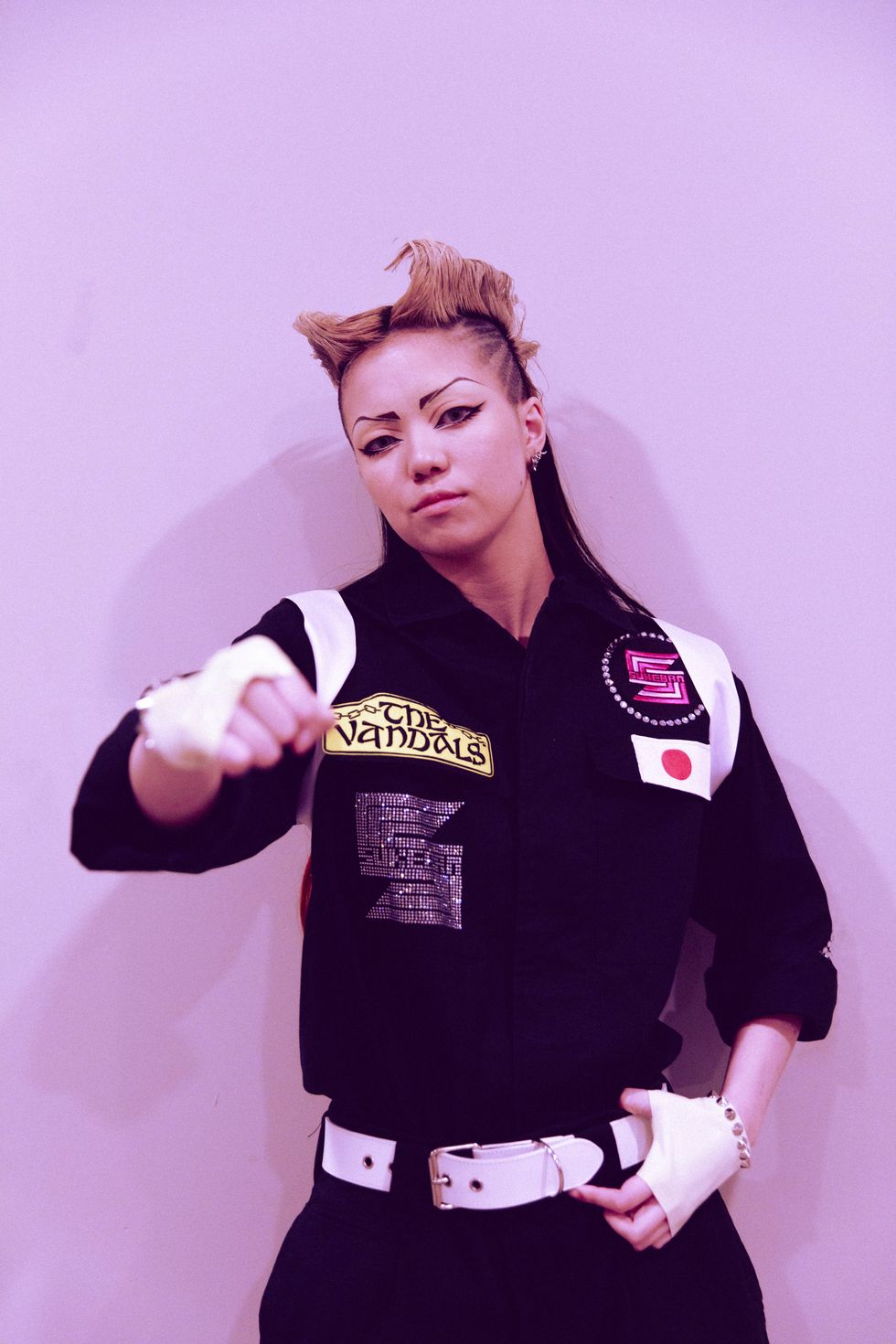
Sukeban is more than just a wrestling league. It’s also a love letter to Japanese culture. The fashion and makeup, which take inspiration from anime and J-pop, are just as important as the performances and athleticism. Its unique mix of self-conscious girliness and campy violence shines in a new animated logo designed by the artist Aurel Schmidt. In the graphic, “Sukeban” is spelled out with weapons standing in for letters. The “K” takes the form of a smoking pink machine gun studded with hearts, and the “A” is represented by nunchucks tied together with a gossamer blue bow. Then, blood splatters across the screen.
“This was the first time I've actually executed practical effects,” Schmidt wrote over email. “We got a sheet of plastic sheeting and fake blood. One person [filmed] while two people sprayed blood all over the work.”
Creative director and costume designer Olympia Le-Tan brought in Schmidt to further her vision, but the heart of Sukeban lies within the personas she created for the 16 athletes—all successful wrestlers in Japan, where joshi is a phenomenon. Through lengthy conversations with each wrestler, Le-Tan brought out their distinct personalities, like the anime-loving nerd Otaku-Chan and the deadly clown Bingo. The women are united through four teams. There are the sailor scouts of Harajuku Stars, the princesses of Dangerous Liaisons, the sporty Cherry Bombs, and the outcasts of the Vandals. One wrestler, Stray Cat, roams the ring unaffiliated with any team.
Crush Yuu, who is competing for the championship title that night against Dangerous Liaisons' Commander Nakajima, wears a bedazzled Cherry Bombs jersey with tight biker shorts, topping off her look with a bun of blue braids.
“The costume really portrays her as a person. It's supposed to be something that's powerful, strong, energetic,” Crush Yuu says through a translator.
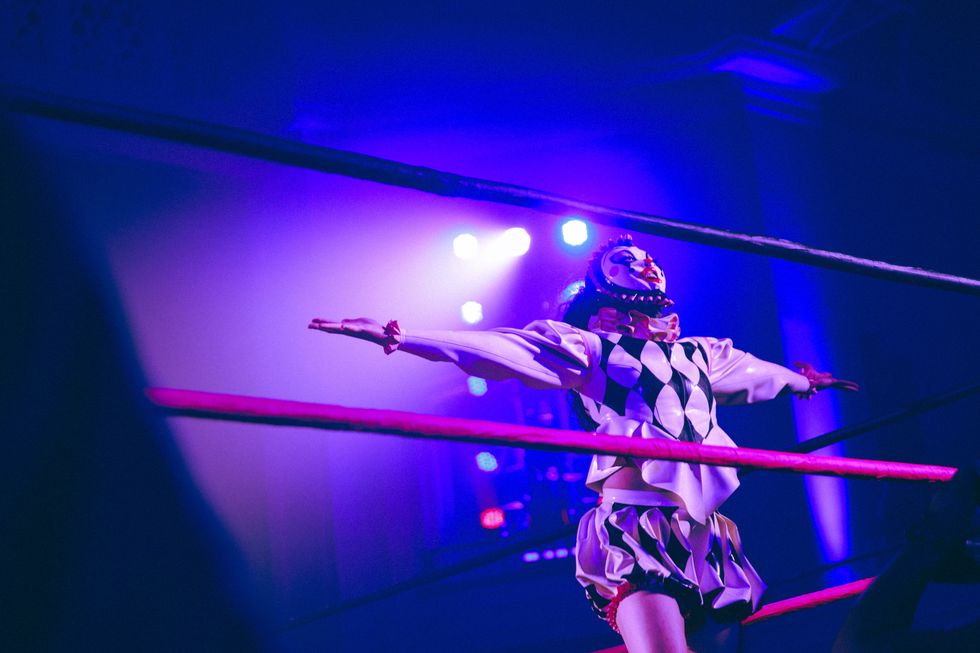
Le-Tan’s designs swap stereotypical spandex for latex, a collaboration with Soft Skin Latex in the United Kingdom. Queen of Hearts and Lady Antoinette, both of Dangerous Liaisons, wear shiny gowns with slits that show off frilled garter belts. Supersonic, a member of the Cherry Bombs, hides her face behind a ruffled mask that crosses Japan’s Harajuku style with Mexico’s Lucha Libre.
The coveted championship belt, designed by the Australian artist Marc Newsom, is an intricately detailed drawing with a vibrant, oil-marker style straight out of a Shojin manga. In the center, one wrestler flies in the air, about to body-slam their opponent. They are framed by a blue tiger, glowing with energy, and underneath, a two-headed crocodile grins while it waits for the match to finish.
Another distinctive quality of Sukeban: the show is not interested in catering to the male gaze. (At intermission, instead of girls prancing in bikinis, Tokyo yo-yo master Ayumu Harada shows off his coolest tricks.) The night is a showcase of the roster’s serious athleticism. Slouched socks are paired with shin pads, and there’s not a single high heel in sight.
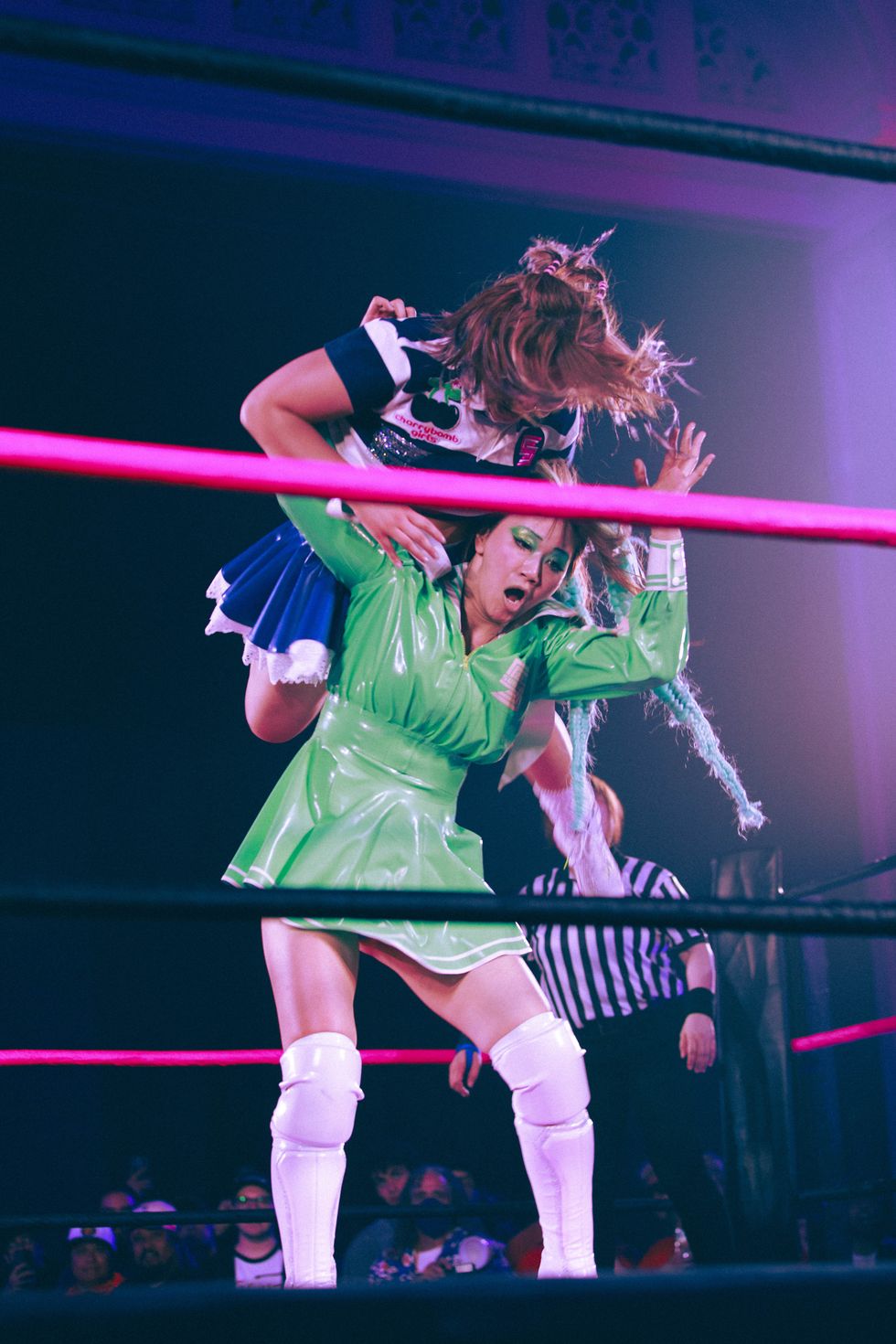

In the matchup between preppy Saree Bomb and blue-pigtailed Maya Mumushi, each woman takes turns drop-kicking, chopping, and putting each other into choke holds. The match ends when Saree Bomb rolls over an exhausted Maya Mumiushi, grabbing her ankle and pinning her in a leg lock.
The violence dials up even more in the third match, when Lady Antoinette brings chairs and a garbage can into the ring to intimidate her opponent Atomic Banshee. Early in the match, she presses a chair into Banshee’s neck, giggling. After getting loose, Banshee responds by throwing the entire can over Lady Antoinette, then smacking the metal with its lid. Ultimately, Lady Antoinette gets the upper hand when she seats Atomic Banshee in a chair, wraps a chain around her neck, and chokes her while peacocking to a roaring, stomping crowd.
“American crowds really get engaged and energetic,” Crush Yuu’s translator says. “She feels more joy when she's in front of the American crowds.”
The rowdiness at the match hid the fact that Sukeban, and all-women’s wrestling in general, was a completely new experience to most people in attendance. Wrestling superfans may have recognized commissioner Bull Nakano, a WWE hall of famer, but most of the athletes had never stepped foot in America before they signed onto the tour. That didn’t stop celebrities from pouring in: the night’s guest list included Steven Yuen, Greta Lee, Barbie Ferreira, and Diplo. Saweetie even made an appearance, strutting onto the stage with the Harajuku Stars, who used her new single “NANi” for their entrance music.
The hunger for Sukeban echoes the recent enthusiasm for professional women’s sports. So while Crush Yuu didn’t manage to swipe the title from Commander Nakajima, there will be a rapturous audience waiting for their rematch.
Want more stories like this?
Elixirs, Tinctures, and Yin & Yang
Thuy Is the Bay Area’s Princess
Kitty Ca$h’s New Go-To Songs Are Her Own

